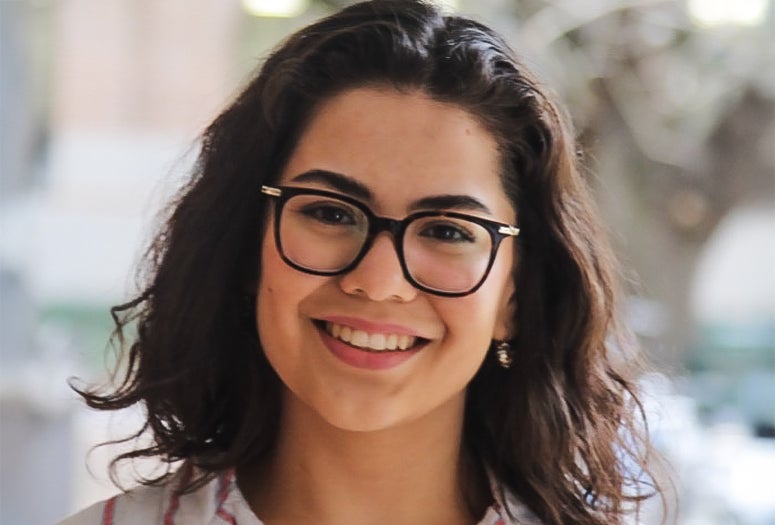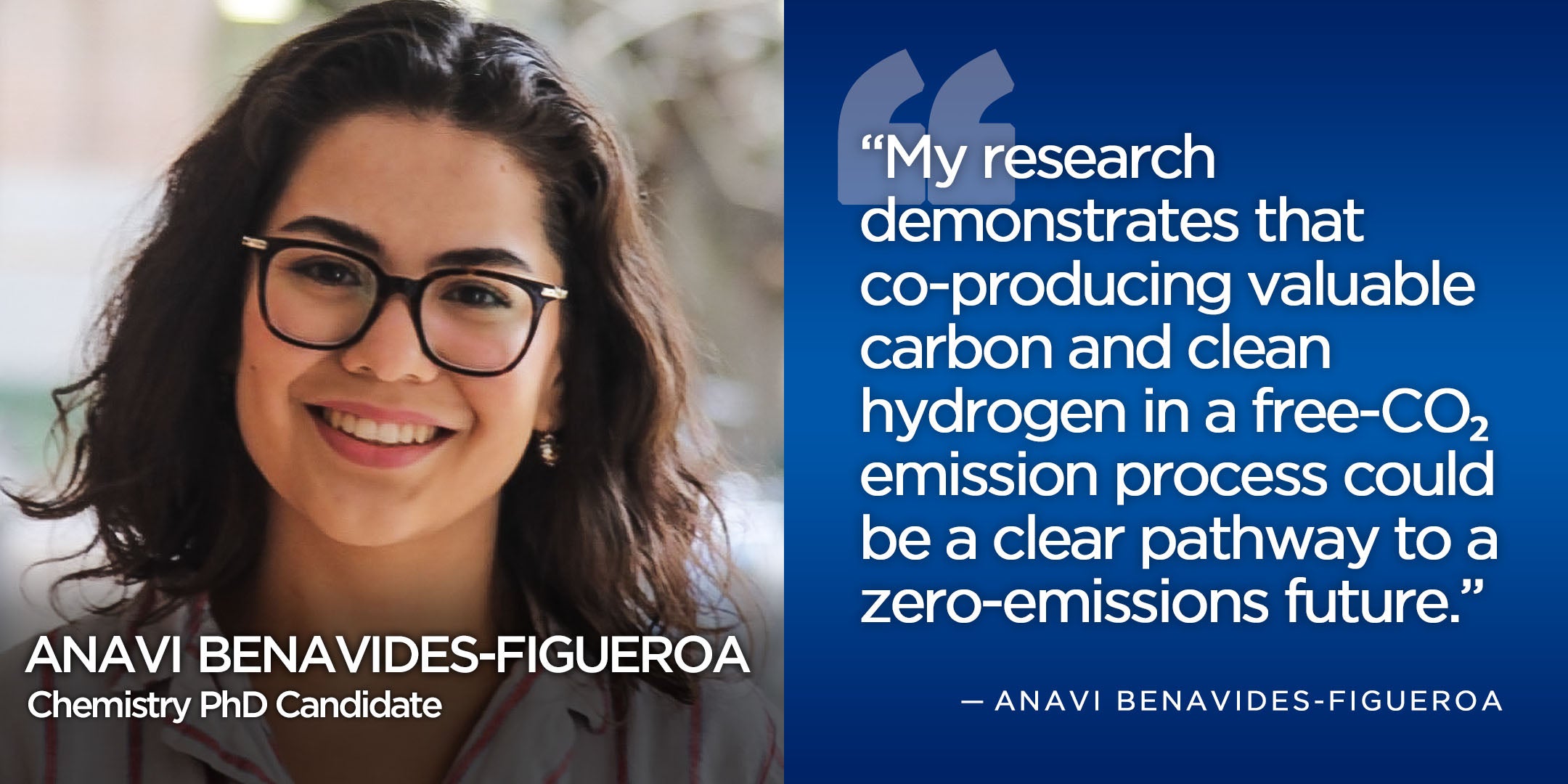Meet AnaVi
Department: Chemistry
Year in Graduate School: 4th year
Expected Graduation: December 2026, PhD
Hometown: Monterrey, Mexico
LinkedIn: Ana Victoria Benavides Figueroa
Research Focus
What problem does your thesis help to address?
Carbon nanotubes (CNTs) are lightweight nanomaterials with exceptional mechanical, thermal, and electrical properties that can be assembled into macrostructures with the potential to displace metals like steel and aluminum. My research utilizes methane, a fossil hydrocarbon, to synthesize CNTs as a form of valuable carbon through a free-CO₂ emission process that co-produces hydrogen (H₂) as a source of clean energy.
Can you describe your research in more depth for specialists in your field?
Using the Floating Catalyst Chemical Vapor Deposition (FCCVD) method, my work focuses on studying and understanding the carbon nanotube growth mechanisms by optimizing the multifactorial space of reaction parameters and the complex reactor environment. We aim to efficiently synthesize carbon nanotubes of high quality (high aspect ratio and crystallinity) to enable the assembly of high-performance macromaterials like carbon nanotube fibers.
Research Outputs and Impact
Have you produced any notable scholarly work so far?
During NT’24, an international conference with great influence on the nanotube field, I presented work establishing the significant effect that reactor orientation can have on CNT synthesis and material quality performance.
Is there any funding you would like to acknowledge?
We would like to recognize the Advanced Research Projects Agency-Energy Grant Open 2018 (DE-AR0001015) for supporting this research.
Sustainability and Future Directions
What do you see as the most pressing sustainability challenge the world is facing?
One of the main challenges is repurposing the supply of fossil hydrocarbons that are currently burned for energy into industrial carbon materials that can provide lightweight solutions for the electrical and transportation sectors.
How does your research contribute to solving sustainability challenges?
By increasing the efficiency of the synthesis process for high-quality carbon nanotubes, my research demonstrates that the idea of co-producing valuable carbon and a clean energy source (H₂) in a free-CO₂ emission process could be a clear pathway to a zero-emissions future in the fight against climate change.
Career Aspirations
What are your career goals after graduation?
I would like to take on leadership roles in industrial R&D to develop research solutions that allow us to tackle major sustainability challenges. Becoming a teaching professor is also a deep aspiration of mine, as I would like to inspire young students to pursue scientific careers.
Stay tuned for more student spotlights from the Rice Sustainability Institute!


